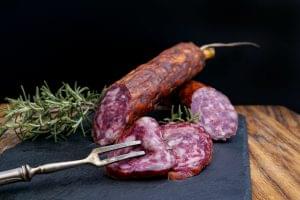Lab-grown meat: the future of sustainable food production or a dead end?
In recent years, increasing attention has been paid to laboratory-grown meats, which many believe hold the promise of sustainable food production. However, the innovative solutions raise a number of questions that may be important not only in technological but also in economic and social aspects, writes Agrársektor. Will these products really be able to replace traditional meat consumption? And if so, what impact will they have on animal husbandry, the feed industry or human health? Experts had a lively discussion on these topics at the Portfolio Agrárszektor 2024 conference.
What is artificial meat?
 The concept of artificial meat is not clear, so it is worth clarifying. We can talk about two main categories: one is meat substitutes made from plant-based ingredients, which offer an alternative for those following a vegan or vegetarian diet. These products are often designed to resemble traditional meat in texture and taste. The other group includes laboratory-produced meats, which are made by culturing animal cells. In recent years, huge sums of money have been spent on developing this technology, but their economic return and social acceptance are still questionable.
The concept of artificial meat is not clear, so it is worth clarifying. We can talk about two main categories: one is meat substitutes made from plant-based ingredients, which offer an alternative for those following a vegan or vegetarian diet. These products are often designed to resemble traditional meat in texture and taste. The other group includes laboratory-produced meats, which are made by culturing animal cells. In recent years, huge sums of money have been spent on developing this technology, but their economic return and social acceptance are still questionable.
Economic and food safety challenges
Attila Csorbai, President of the Poultry Product Council, highlighted significant challenges in the production of laboratory-produced meats at the conference. As he said, it is not yet clear whether the technology is economically viable in the long term. “We are going into absolutely unknown territory, with absolutely no experience. We do not know this technology yet, and there are huge question marks as to whether these can really be profitable investments in the future,” the expert emphasized.
The European Food Safety Authority (EFSA) is still investigating the food safety consequences of laboratory-produced meat, which also complicates the spread of the technology. One of the biggest challenges is whether consumers will be willing to accept an artificially produced product.
Related news
Top 5 sustainability trends in 2026 – a new era may begin
🎧 Hallgasd a cikket: Lejátszás Szünet Folytatás Leállítás Nyelv: Auto…
Read more >Fashion, drones and sustainability – the new face of agriculture at the AgriTech InnoExpo event
🎧 Hallgasd a cikket: Lejátszás Szünet Folytatás Leállítás Nyelv: Auto…
Read more >ESG: the majority don’t ask for postponement, preparedness level is increasing
🎧 Hallgasd a cikket: Lejátszás Szünet Folytatás Leállítás Nyelv: Auto…
Read more >Related news
MOHU: 5,200 return points are in operation, but 47 larger settlements still do not have RE points – public “enema” machines may be introduced
🎧 Hallgasd a cikket: Lejátszás Szünet Folytatás Leállítás Nyelv: Auto…
Read more >GDP growth in OECD member countries slowed to 0.3 percent in the last quarter of last year
🎧 Hallgasd a cikket: Lejátszás Szünet Folytatás Leállítás Nyelv: Auto…
Read more >KSH: in the fourth quarter of last year, investment performance was 1.3 percent lower than a year earlier
🎧 Hallgasd a cikket: Lejátszás Szünet Folytatás Leállítás Nyelv: Auto…
Read more >









